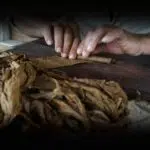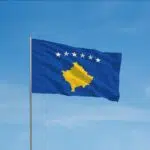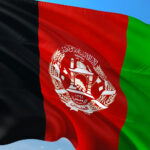Brotherhood/Sisterhood Week is observed in the third week of February and this year will be observed from February 15 to 20. Brotherhood Week was proclaimed by President Franklin D. Roosevelt in 1934. This week later became known as Brotherhood/Sisterhood Week. The concept originated with the National Conference of Christians and Jews (now the National Conference for Community and Justice) an interfaith and inter-cultural organization. The idea was to set aside a week each year when people of all faiths would get together, discuss their differences, and reaffirm the human brotherhood that is common to their religious beliefs.
History of Brotherhood/Sisterhood Week
Every year since 1934, Brotherhood/Sisterhood week, formerly Brotherhood Week, has been celebrated in the U.S. The idea of this week is to gather people of different faiths to discuss their differences, ideas, and thoughts and reaffirm the human brotherhood and sisterhood that underlines the variations in their religious beliefs.
This week is celebrated in schools, churches, synagogues, civic groups, and other organizations across the U.S. People of different faiths and backgrounds are brought together to celebrate their faith regardless of what it is. Brotherhood/Sisterhood Week reminds us of our heritage of tolerance and offers an opportunity to celebrate our differences.
The idea of celebrating Brotherhood/Sisterhood Week near Washington’s Birthday called attention to George Washington as a symbol of the U.S.’s commitment to freedom from racial and religious prejudice. Washington wrote a letter to the Hebrew congregation in Newport, Rhode Island, when he was President assuring them that in the U.S. there would be “To bigotry, no sanction, to persecution no assistance.” The National Conference for Community and Justice not only organizes this observance but is also engaged in a continuing effort to promote interfaith relations based on this quote.
Brotherhood/Sisterhood Week timeline
The National Conference of Christians and Jews moves to facilitate cooperation on civic and social justice issues and to promote understanding and mutual respect through education and dialogue.
In 1933, Father John Elliot Ross, Protestant minister Dr. Everett Ross Clinchy, and Rabbi Morris Samuel Lazaron travel 9,000 miles and visit 129 groups to promote interfaith understanding.
The National Conference of Christians and Jews sponsors the first Brotherhood/Sisterhood Week in the U.S.
The organization faces financial trouble and it is dissolved.
Brotherhood/Sisterhood Week FAQs
When and why was NCCJ founded?
The organization was founded in 1927 in response to a rise in racial divides and anti-Catholic sentiments.
What famous quote is their work based on?
“To bigotry, no sanction, to persecution no assistance.”
What are four ways of increasing universal brotherhood?
Universal brotherhood can be achieved through love, cooperation, and goodwill between both individuals and countries.
How to Observe Brotherhood/Sisterhood Week
Go to a local event
Find a local event near you and join the celebrations. You can use this opportunity to meet people from different races or religions.
Organize an event through your congregation
If no local event is held, you can organize one through your congregation or local community services. This is your opportunity to enhance the concept of caring for others.
Plan a food drive
By sharing food, you can demonstrate the value of being brothers and sisters. Share kindness with the local food pantry.
5 Facts About The National Conference Of Christians And Jews (NCCJ)
It has several programs
The programs include workshops, training programs, sponsorship of Brotherhood/Sisterhood Week, awards, and a quarterly newsletter.
It has changed its name
In the early 1990s, the name was changed to the National Conference for Community and Justice, which reflects its work on a broad range of human relations issues.
It is headquartered in New England
NCCJ continues to draw upon its proud tradition of championing the cause of social justice for all and its mission of fighting bias, bigotry, and racism in all its forms.
The NCCJ has a lot of volunteers
The organization relies on volunteers to get all their programs running and they are always on the lookout for volunteers.
The NCCJ receives donations
By supporting NCCJ, you can take one more step towards becoming part of creating change.
Why Brotherhood/Sisterhood Week is Important
This celebration promotes inclusion
The main idea of Brotherhood/Sisterhood week is to set aside differences and bring people together. It is also an opportunity for people of different religions and races to get to know each other.
The NCCJ has important programs
The NCCJ´s programs help to ensure that children grow up in a kinder, safer, and more accepting world. The programs teach children to be resilient and to keep striving towards a world where everyone can be valued for who they are.
It is an opportunity to address racism
This week is also an opportunity to raise awareness about racism and bigotry and to try to eradicate them.
Brotherhood/Sisterhood Week dates
| Year | Date | Day |
|---|---|---|
| 2024 | February 18–23 | Sunday–Friday |
| 2025 | February 16–21 | Sunday–Friday |
| 2026 | February 15–20 | Sunday–Friday |
































